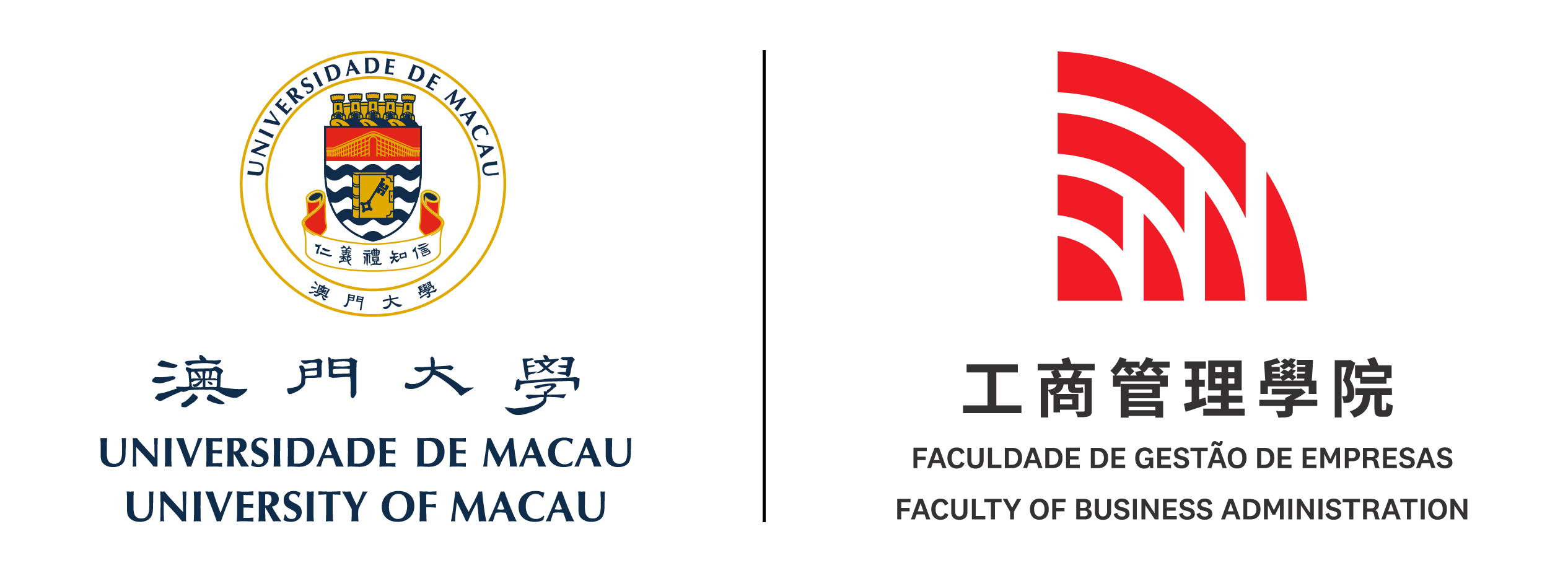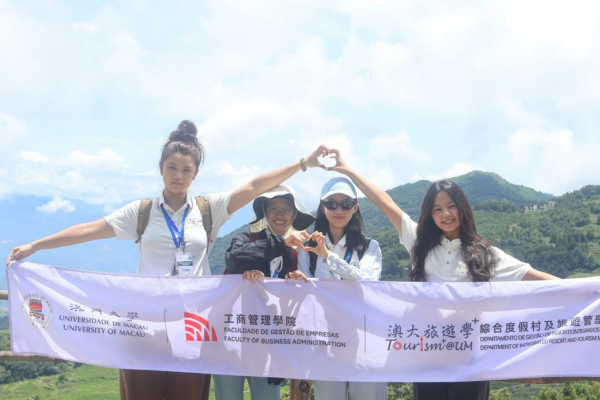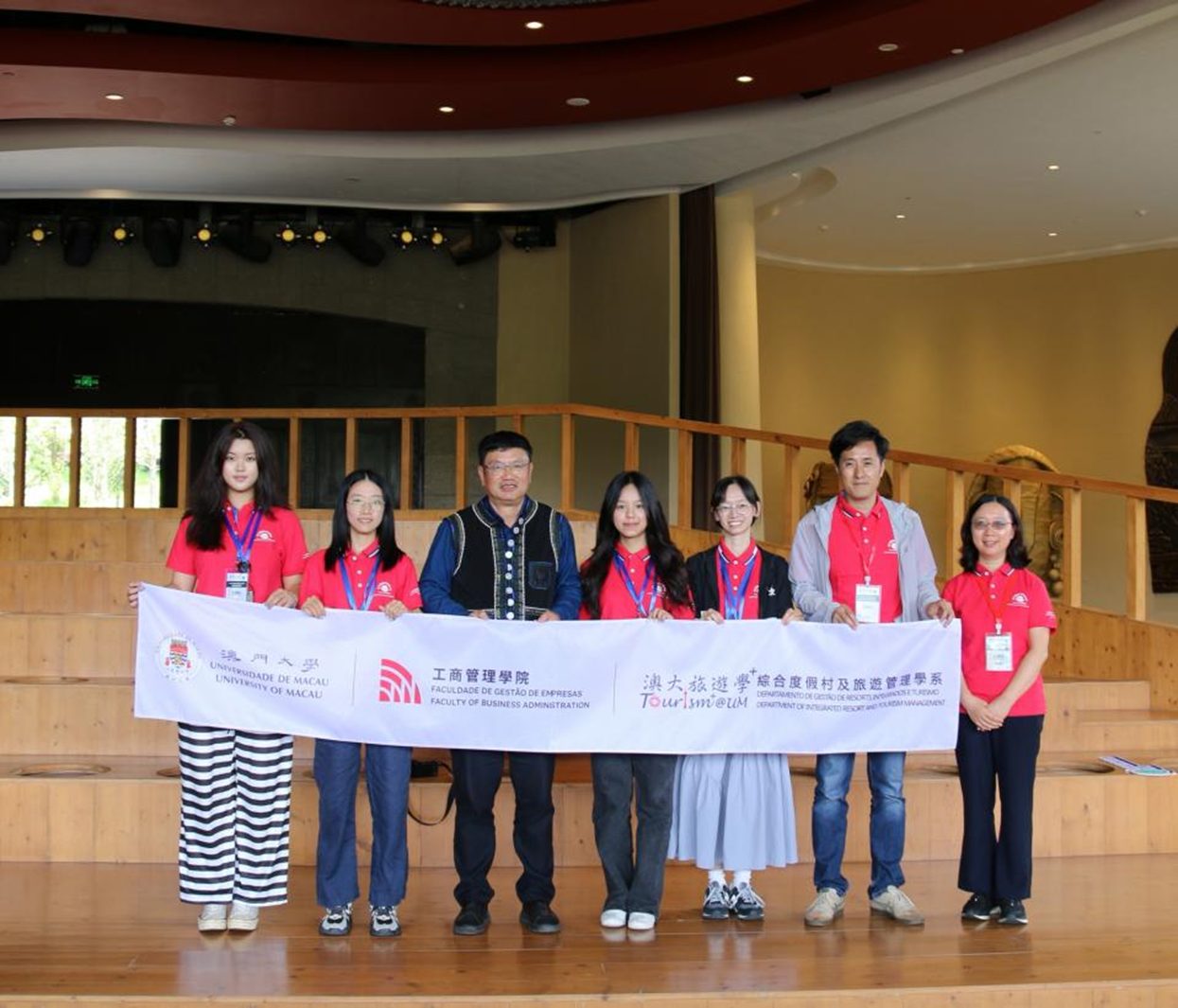2025年7月17日至21日,澳門大學工商管理學院綜合度假村及旅遊管理學系的學生前往中國雲南省元陽縣參加由中山大學旅遊學院主辦的第七屆阿者科研學夏令營。
元陽梯田是世界文化遺産之一,卻面臨危機並可能逐漸消亡,如何促進該景區的可持續發展成爲了重要的課題。爲解決這個問題,中山大學旅遊學院保繼剛教授團隊提出「阿者科計劃」。依託這一典型的旅遊扶貧案例,澳大學生圍繞“遺産保育與旅遊可持續發展規劃”這一主線進行了深入地遊覽和交流學習。
澳大學生們在阿者科村合影留念
在調研的第一天,澳大學生們深入考察了阿者科村的梯田景觀,體會到其中哈尼族人適應和改造自然的智慧。早上恰有小雨灑落,帶隊老師指著煙雨中的梯田,聲音裡透著欣喜:“這就是四要素之一的水,今天正為你們現場演繹!” 同學們仰頭感受著清涼雨絲,又低頭觀察水潤的田壟—— 這意外的天時,讓“四素同構”的生態智慧瞬間鮮活起來。同學們在阿者科村進行了徒步調研,考察村落景觀的空間機理和旅遊業態發展。從阿者科開發模式的更迭歷史中,同學瞭解了村民分紅的旅遊實踐如何啟動鄉村中的文化遺產。調研期間村民們正在慶祝火把節,出於好奇,同學們還走進村民家中進行了參觀訪問,一些熱情的村民還邀請同學一起吃午飯。下午,帶著考察和講解中引發的思考,同學在保老師的引導下參與了關於「鄉村旅遊是否就能幫助村民減貧」等問題的討論。
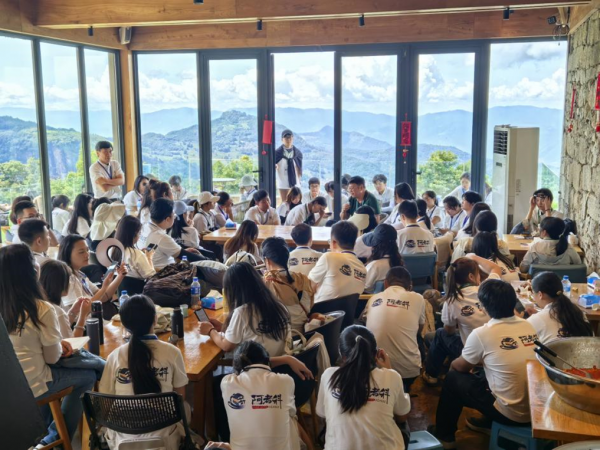
同學們聽保老師的介紹並參與討論
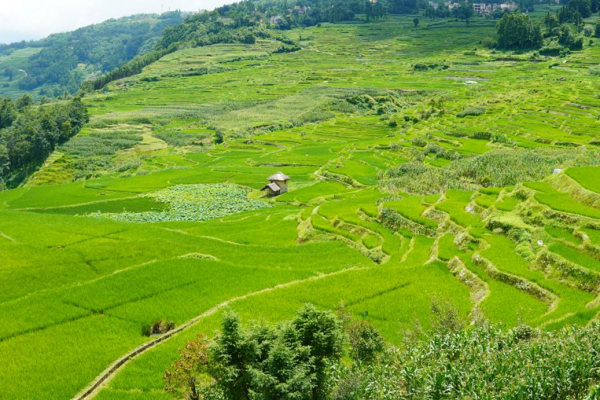
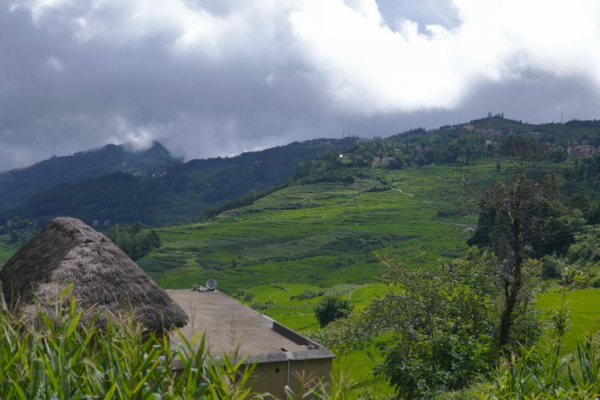
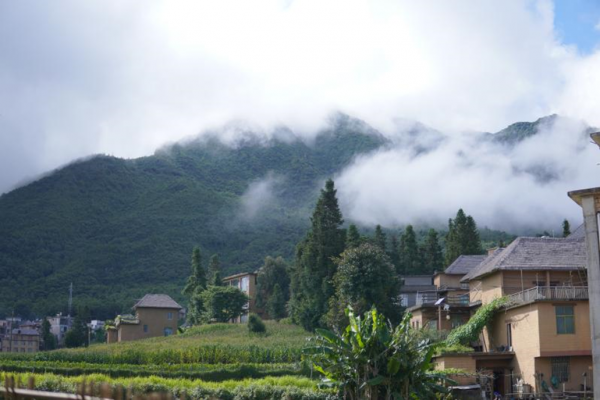
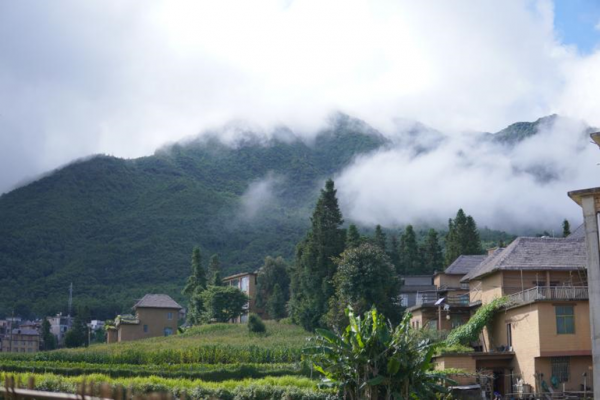
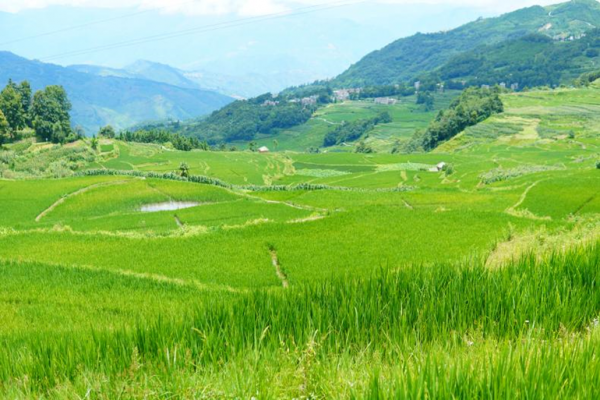
阿者科風景照
In the afternoon, guided by Professor Bao, students engaged in critical analysis of questions sparked by their observations, including “Can rural tourism genuinely alleviate poverty for villagers?”
they synthesized their first-day fieldwork findings through critical analysis. Subsequently, the cohort visited the Terraced Fields Museum for a comprehensive understanding of the agricultural heritage system, followed by a seminar discussing tourism impacts and rural development strategies. During the museum tour, students gained insights into Hani ethnic traditions, such as the Long-Street Banquet and “Zhaishenlin”, through curated interpretive sessions.
Witnessing the millennium-old sustainable wisdom of human-nature harmony in the Hani terraces, students shifted their focus on Day Three to Earth’s more ancient imprints of life—exploring the Chengjiang Fossil Site World Natural Heritage Museum. The museum’s spectacular fossil assemblages, narrating eons of species evolution and environmental upheavals, provided students with a cosmic perspective across geological time to comprehend sustainability.
Through this research summer camp, UM students not only witnessed firsthand how Azheke villagers harness unique natural resources to cultivate survival wisdom and shape distinctive place-based cultural capital, but also engaged in post-fieldwork symposiums examining tourism’s impact on this heritage site. Concurrently, cross-institutional exchanges with peers from other universities provided multifaceted perspectives on navigating heritage conservation and tourism development complexities.
On the second day, UM students attended the Azheke academic symposium, where they synthesized their first-day fieldwork findings through critical analysis. Subsequently, the cohort visited the Terraced Fields Museum for a comprehensive understanding of the agricultural heritage system, followed by a seminar discussing tourism impacts and rural development strategies. During the museum tour, students gained insights into Hani ethnic traditions, such as the Long-Street Banquet and “Zhaishenlin”, through curated interpretive sessions.
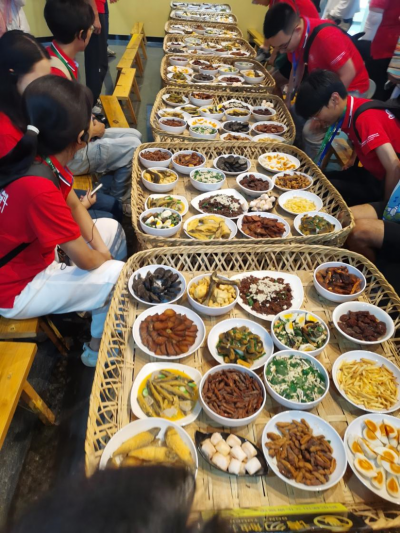
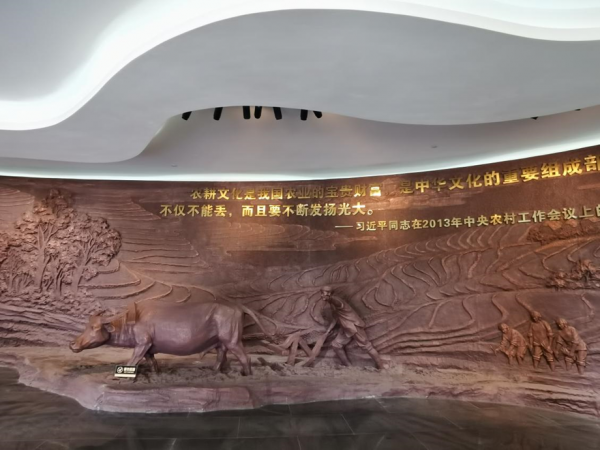
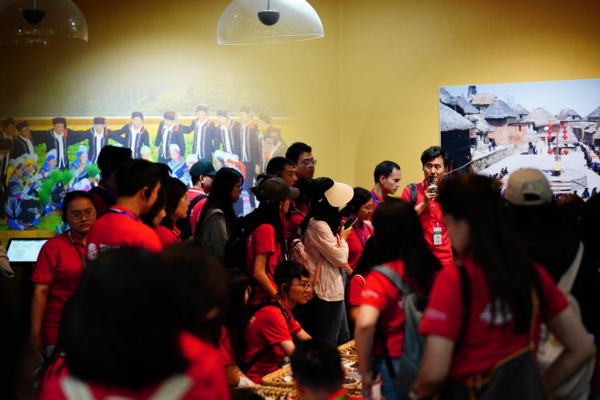
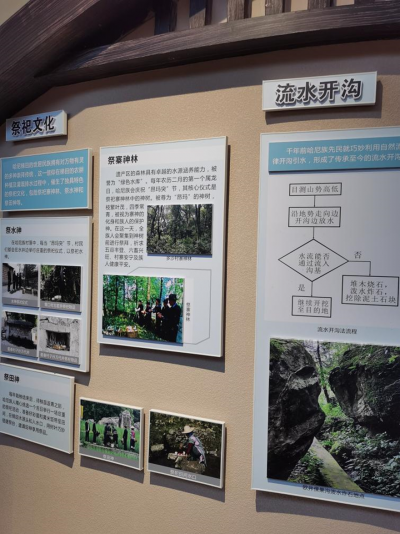
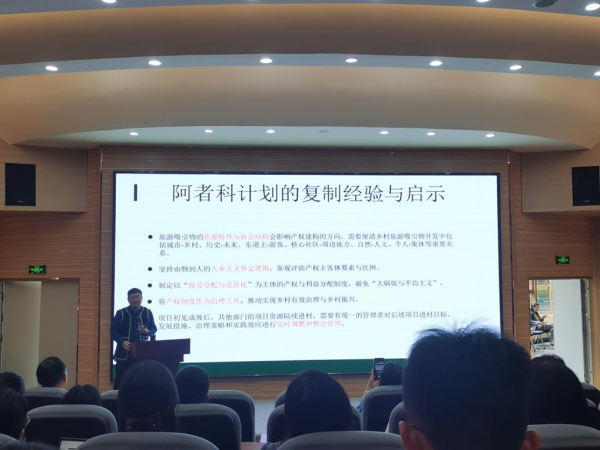
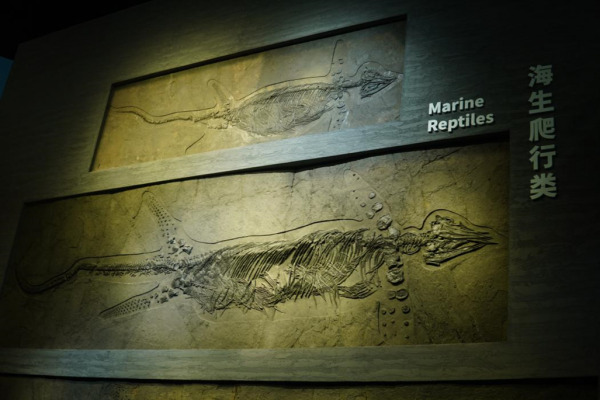
Through this research summer camp, UM students not only witnessed firsthand how Azheke villagers harness unique natural resources to cultivate survival wisdom and shape distinctive place-based cultural capital, but also engaged in post-fieldwork symposiums examining tourism’s impact on this heritage site. Concurrently, cross-institutional exchanges with peers from other universities provided multifaceted perspectives on navigating heritage conservation and tourism development complexities.
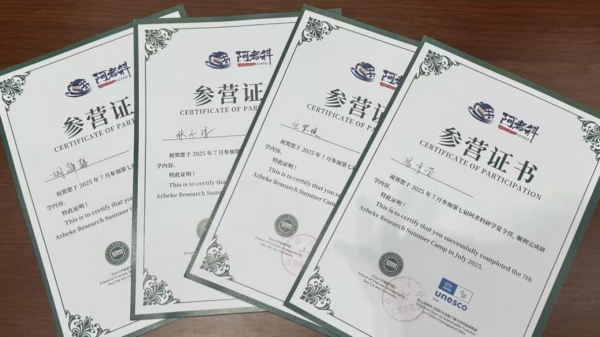
Camp Concluding Group Photo

